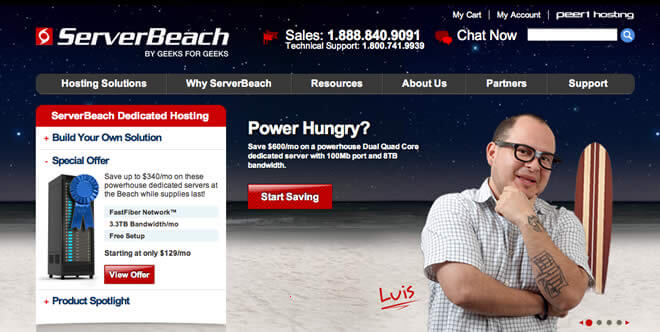Geek Ethicist: Harm and Fortune
“Dear Ethicist:
I was asked a couple of years ago if I could help a company who had some profitable apps for a prominent social network. They needed to bill people for sending presents and wanted to expand the market to teens. I wanted to help but ended up urging the company not to do it. There’s a reason why it’s against the law to give credit cards to 16 year olds.
On reflection this seems very conservative. Perhaps the problem could be fixed by parents setting up a proxy PayPal a/c and setting limits, for example.
Who should protect vulnerable users (children, old people with dementia, and the very gullible) online? Should there be standards for website designers that limit what they can do? Should there be legislation? And who should decide? I don’t want to hold back technology, but I also don’t want to harm vulnerable users.
Signed–
BW”
Dear BW
A Slate article by fellow ethicists Evan Selinger and Thomas Seger, may help us. They discuss the danger of “bubble economies” and the “ethical behavior” of kids today. Even if many people are doing the right thing when, say, selling apps for sending presents, some bad apples can still ruin everything for everyone.
This is an example of the “tragedy of the commons,” which means when everyone plays fair and no one cheats all is well, but as soon a few cheat, even just a little, then others start cheating and soon everyone is harmed, cheaters and non-cheaters alike. That is why bubbles break badly for us all: “Bubble speculation is a case of greedy people attempting to take advantage of people they think are even greedier.” In the end we are all swimming in the same poisoned pool.
RELATED: iTech Review: Great New Weird Apps!
Sure the marketplace of ideas –and apps– drives technological innovation. But every healthy marketplace needs some government controls against self-interest run amuck, particularly when it comes to sellers knowing vastly more than buyers. Otherwise the marketplace goes suicidal. Don’t be embarrassed about being conservative here! Think housing bubble. Lying became the rule for loan makers and takers, and in no time the world marketplace suffered. POP!
I applaud your wise conservative decision to urge the company not to use an app that may have led a greedy few to exploit vulnerable users. The most convenient way to avoid the tragedy of the commons, in this case kids’ access to Mom’s purse, is to have clear enforceable standards for website designers. So, until those legislated standards are put in place, bubbles in unregulated kid spending and exploitation would likely grow with awful consequences.
I presume the website was not planning to use the apps to exploit kids, but once it became clear they could, well a little greed seems harmless enough at first. Remember the carrier pigeon? What the heck, there’s gazillions of ’em, so what if I greedily shoot a few too many? Carrier pigeon: extinct!
“Dear Ethicist–
About ten years ago my cousin offered me the opportunity to partner with him in a lucrative venture. I turned him down. He is now a millionaire. I am not.
RELATED: What is Native Advertising and How Can it Go Very Wrong?
The venture my cousin wanted me to go in with him on was an internet porn company. I could not in good conscience support or work for such a company: my objections ranged from moral to ethical to aesthetics and pride.
Every once in a while, when I am envying my cousin’s money, I think maybe I made the wrong decision. But I know I couldn’t have lived with myself if I made my money that way. I’d rather have my lower-middle class life than millions made off of other people’s vices.
Did I make the right choice? Obviously, deep down, I think I did. But some days, especially when my job is getting me down, I think maybe I didn’t. What do you think?
Signed–
Opted Out of a Porn Fortune”
Dear Opted Out,
I may share your sentiments, but the “marketplace of ideas,” includes the liberty to engage in the marketplace of pornography, despite those who are squeamish or appalled by pornography. This is not ethical relativism. But in a hierarchy of rights, liberty of expression is higher than liberty from obscenity. Despite that, pornography in many of its variations is certainly demeaning in all sorts of horrible ways. It also provides a powerful monetary incentive to physically and emotionally exploit vulnerable populations. And that trumps freedom of expression by any ethical standard. So I respect your decision not to make your fortune in porn. On the other hand….
Morals, Ethics, Aesthetics and Pride, quite a set! Simply put, morals refer to what we actually do or want to do; ethics is how we figure out what we ought to do. Aesthetics is yet again different, since it requires a discussion of the “art world.” Pride? Some pornographers take great pride in their chosen careers. And that is the point. Your choice not to make a career in the pornography business seems neither an ethical decision nor a moral decision.
RELATED: Critical Factors for Choosing a Web Host
If based on ethics you could argue why it is unjustified. You have not. If based on morality, you would not wonder whether you behaved badly. No one “wonders” if they made the wrong decision not to rob a bank or harm an innocent. You would be satisfied your moral choice was consistent with your past moral decisions. So it seems, to me it is something else.
You wanted the money of your pornographer cousin, but did not think the cost of demeaning yourself was worth it. Now you wonder if it would have been. You have no moral objection to the pornography industry, you just made a pride-for-money tradeoff, and now question whether from a self-interested perspective choosing pride was was a good trade off. Let me help you; it was.
Enlightened self-interest is a fine ethical principle to root ones morals. In the long run it is reasonable to conclude you would likely have suffered more harm than benefit had you gone into the pornography industry, particularly if you intended to have respectful children or status among your church-going neighbors, or for that matter, any other job than a job in the pornography industry.




